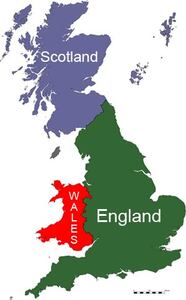100 signatures reached
To: UK Government
Make house-buying fairer

Improve laws governing the buying and selling of homes in England and Wales, by bringing them into line with Scottish laws.
Presently, after an offer is accepted in writing, the seller or buyer can pull out, without financial or legal penalty. The would-be buyer is left with the bill for the survey, searches and solicitor's fees, even if it is the seller who has pulled out of the deal.
Presently, after an offer is accepted in writing, the seller or buyer can pull out, without financial or legal penalty. The would-be buyer is left with the bill for the survey, searches and solicitor's fees, even if it is the seller who has pulled out of the deal.
Why is this important?
In highly competitive markets that favour sellers, such as that in London at present, house sellers often renege on the agreement to sell, or increase the price after accepting an offer. This is distressing, time-consuming and costly for buyers, who are already faced with rapidly increasing house prices.
Some buyers go through this process several times, costing them thousands of pounds in wasted fees.
Vendors can continue to remarket properties, often through different agents, once sales have been agreed. The sales process is slowed down, buyers are misled and some agents do not receive their fees.
Many house sales form part of a chain. If one person in the chain reneges on their agreement, this has financial and emotional implications for many others. Through no fault of their own, buyers miss out on houses, prices must be renegotiated or extra funds found. All this causes distress and increased financial pressure.
Until completion, there is no guarantee or protection for buyers or sellers. This makes an already stressful process even more painful, frustrating and costly than it needs to be.
In Scotland, there is far more protection. Should the seller attempt to accept a higher bid after a written offer and acceptance, their solicitor will refuse to act for them as this, according to the Law Society of Scotland code of practice, would be professional misconduct.
The same rules should apply to England and Wales. This will reduce house price inflation, and make the process fairer and more transparent.
Some buyers go through this process several times, costing them thousands of pounds in wasted fees.
Vendors can continue to remarket properties, often through different agents, once sales have been agreed. The sales process is slowed down, buyers are misled and some agents do not receive their fees.
Many house sales form part of a chain. If one person in the chain reneges on their agreement, this has financial and emotional implications for many others. Through no fault of their own, buyers miss out on houses, prices must be renegotiated or extra funds found. All this causes distress and increased financial pressure.
Until completion, there is no guarantee or protection for buyers or sellers. This makes an already stressful process even more painful, frustrating and costly than it needs to be.
In Scotland, there is far more protection. Should the seller attempt to accept a higher bid after a written offer and acceptance, their solicitor will refuse to act for them as this, according to the Law Society of Scotland code of practice, would be professional misconduct.
The same rules should apply to England and Wales. This will reduce house price inflation, and make the process fairer and more transparent.

